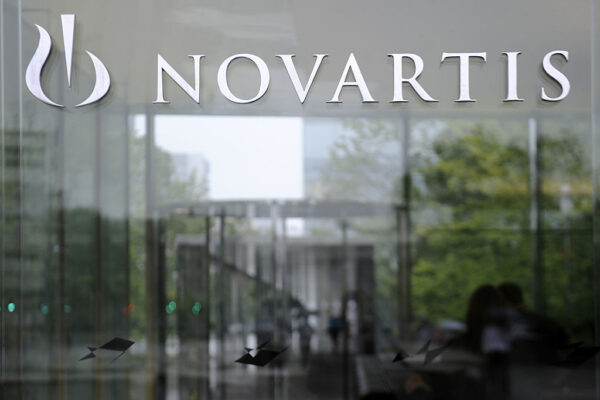
Novartis is committing $100 million to Voyager Therapeutics to see if the biotech’s technology can lead to new gene therapies for Huntington’s disease and spinal muscular atrophy.
According to deal terms announced Tuesday, the sum is an upfront payment that includes a $20 million equity investment in Voyager. Milestone payments could bring the Lexington, Massachusetts-based biotech up to $1.2 billion more. If the partnership leads to commercialized therapies, Voyager would also receive royalties from sales.

With the Rise of AI, What IP Disputes in Healthcare Are Likely to Emerge?
Munck Wilson Mandala Partner Greg Howison shared his perspective on some of the legal ramifications around AI, IP, connected devices and the data they generate, in response to emailed questions.
Gene therapies reach their bodily destinations carried aboard an engineered virus. The therapy’s genetic cargo is enveloped by a protein shell called a capsid. Voyager’s TRACER technology platform discovers capsids that can target particular types of tissue. In addition to better safety and efficacy, the company contends its technology can lead to capsids with certain desirable properties, such as the ability to cross the blood brain barrier. Penetrating into the brain is important for gene therapies that address central nervous system (CNS) disorders such as Huntington’s and spinal muscular atrophy (SMA).
Novartis already has a presence in SMA with Zolgensma, a gene therapy approved by the FDA in 2019. But Zolgensma comes with the risk of liver complications. The collaboration with Voyager could give Novartis a way to develop a gene therapy that is safer and more effective. The agreement grants Novartis access to TRACER capsids related to SMA. The pharmaceutical giant is responsible for development and commercialization of the SMA gene therapy. In Huntington’s, Voyager will handle preclinical development while Novartis is responsible for clinical development and commercialization.
“We believe Voyager’s TRACER capsids hold promise for enabling next-generation gene therapies for diseases of the central nervous system, aligning well with our deep neuroscience expertise and gene therapy leadership at Novartis,” Fiona Marshall, president of biomedical research at Novartis, said in a prepared statement.
The deal deepens the relationship between Novartis and Voyager. In 2022, the Swiss pharma giant paid $54 million up front to begin a partnership to discover capsids for three undisclosed CNS targets. So far, Novartis has licensed two of them, paying a $25 million option exercise payment last April, according to Voyager securities filings. Details about those targets are still scant, but Voyager said they are distinct from the company’s internal and partnered pipeline.
Voyager said in a Tuesday regulatory filing that it expects to submit an investigational new drug application in the first half of this year for VY-TAU01, its antibody drug candidate that targets the tau protein to treat Alzheimer’s disease. If cleared for clinical testing, a Phase 1 study would begin in healthy adults later this year followed in 2025 by a multiple-ascending dose arm enrolling patients with mild cognitive impairment or early Alzheimer’s. Voyager’s amyotrophic lateral sclerosis program aims to silence the SOD1 gene, which drives the disease when mutated. The company said it expects this program will be ready for an investigational new drug application in mid-2025.
In addition to the Novartis alliance, Voyager has a partnership with Neurocrine Biosciences in Parkinson’s disease, the neuromuscular disorder Friedreich’s ataxia, and five gene therapies for undisclosed indications. Voyager also struck a 2021 deal with Pfizer giving the pharma giant the right to select capsids stemming from the TRACER platform. According to Voyager securities filings, Pfizer exercised an option for a capsid for a potential gene therapy for a rare neurological disease but declined to option a capsid for a cardiovascular disease.
Voyager is still in the process of completing its financial reports for 2023. But the company gave a preliminary estimate of a $230.7 million cash position as of the end of the year—not including the $100 million coming from Novartis. The company expects the combined cash, along with payments expected from its Neurocrine alliance, will be enough to fund operations into mid-2026.
Photo: Adrian Moser/Bloomberg, via Getty Images














